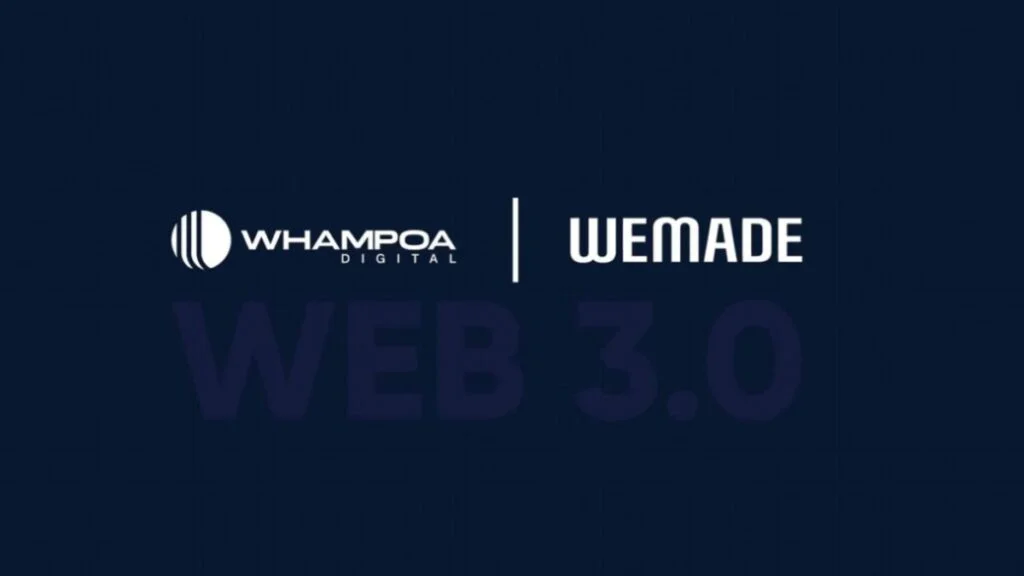The $100 million web3 fund has been launched by South Korean video game producer Wemade Co. in association with Whampoa Digital, an investment firm based in Singapore.

Together, the two businesses established the Wemade Web3 Fund, which is devoted to funding blockchain-based gaming initiatives with an emphasis on the Middle East.
According to the release, the fund seeks to accelerate the adoption of blockchain technology. Furthermore, Wemade is now building the Wemix Play Center, a blockchain-gaming-focused commercial facility located in Dubai’s DIFC Innovation Hub.
It is anticipated that blockchain gaming firms that receive funding from the fund will set up offices within the Wemix Play Center as part of this project.
According to the release, this strategic step intends to promote mentorship and cross-collaboration among the supported companies. Whampoa Group Senior Partner Aureole Foong said in a statement that the cooperation will allow them to go beyond their established sectors and pioneer new areas within the digital asset market.
It also seeks to promote innovation in the Middle East, which is acknowledged as one of the Web3 space’s fastest-growing regions. In a statement, Wemade CEO Henry Chang said they hope to share insightful knowledge about blockchain technology with Whampoa Digital, a well-known investment firm in Singapore.
He emphasized that to strengthen the collaboration, each party offers their unique experience. Wemade and Space and Time, a decentralized hybrid transactional database and analytic data warehouse, partnered back in March.
The partnership sought to expand and improve the blockchain gaming infrastructure. The technology from Space and Time maximizes on-chain gaming experiences by combining off-chain and on-chain data in a single trustless ecosystem.
Wemade expanded player ownership and control over their digital assets by utilizing the developer tools available in Space and Time. Wemade challenged the delisting of their WEMIX cryptocurrency from four significant local cryptocurrency exchanges last year by filing injunctions against Upbit, Bithumb, Coinone, and Korbit.
Following the exchanges’ notice of WEMIX’s upcoming delisting, the decision to submit the injunctions was made, with the rationale being that circulating supply statistics were inaccurate.
Wemade argued that investors suffered as a result of the exchanges’ judgments, which were created based on hazy logic. The Seoul Central District Court overturned the injunction in spite of Wemade’s efforts, enabling the exchanges to move forward with WEMIX’s delisting.
Major South Korean exchanges delisted Wemade’s WEMIX token in November 2022, citing the distribution of more tokens than previously reported by Upbit, Bithumb, Coinone, and Korbit.
The Seoul Central District Court dismissed Wemade’s injunction against the delisting. WEMIX then saw a 24-hour value loss of over 60% and a 30-day value loss of approximately 90%.
The difficulties in the cryptocurrency space, particularly with regard to listing and delisting on significant platforms, are brought to light by this legal case.
Because of worries about speculation (i.e., gambling), the South Korean government prohibited the domestic distribution of blockchain-based play-to-earn (P2E) games earlier this year, including non-fungible token (NFT) games.
The South Korean authorities enforced the prohibition, citing a 15-year-old incident in which a game awarded gift certificates to players, which led to cash centers outside arcades, where players would exchange their certificates for cash.
The gaming industry has suffered greatly as a result of the restriction; South Korean P2E game developers are now publishing blockchain-based games outside in the hopes that the local ban will be overturned.
P2E games must also be taken down from Google’s and Apple’s respective app stores in accordance with the ban. The South Korean government has been against blockchain gambling inside its borders from the beginning of 2021.
Wemade reportedly stated that it will not be releasing blockchain-powered versions of its current games in Korea. However, if a blockchain game does not include any speculative components, the chairman of Korea’s Game Rating and Administration Committee has expressed a favorable approach toward them.
Yoon Suk-yeol, the president of South Korea, pledged during his campaign to end the ban on P2E, and the CEO of Wemade anticipates that South Korea would do so by 2024.
